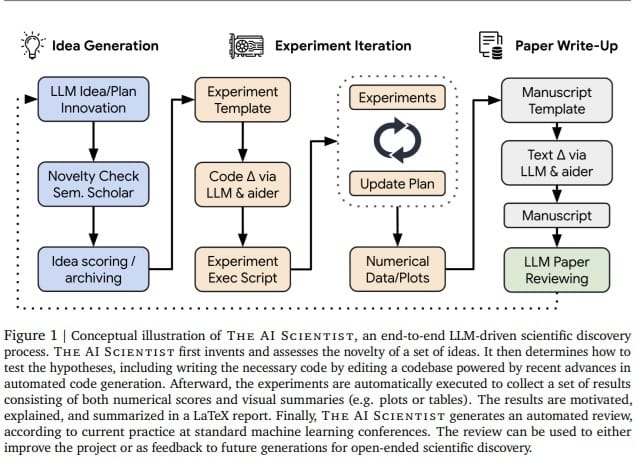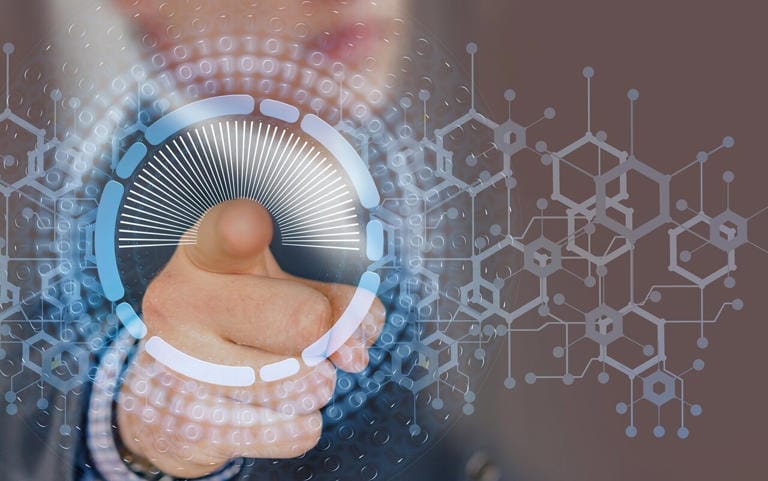- AI Weekly Wrap-Up
- Posts
- New Post 8-14-2024
New Post 8-14-2024
Top Story
Google beats Apple, OpenAI with Voice AI
Many (including, ahem, moi) have criticized Google, who invented modern AI in 2017, for being slow to market with AI solutions. Not this time. Yesterday, Google put on a stunning live demo (cuz, erm, they faked so many prior demos) of Gemini Live, their version of an intelligent voice assistant on your phone. (Think, a much smarter Siri that can actually do stuff for you.) The demo included a section where the Google product manager vocally queried Gemini Live to find family-friendly wineries near Mountain View that included outdoor areas and playgrounds for the kids - a fairly complex multi-stage query - and the AI worked flawlessly. Unlike Apple and OpenAI, who keep telling us how great their voice assistants are going to be, Google is first to actually release one into production with their new Pixel 9 phones.
In addition to releasing their AI voice assistant, Google demonstrated a large number of on-device AI features, such as photo-editing, image generation, and making transcripts and/or summaries of conversations.

Clash of the Titans
Nvidia partners with California community colleges
AI chipmaker giant Nvidia is partnering with the State of California to massively enhance AI education and training in the state’s community colleges. The vision is to bring AI out of the elite universities and into local communities, where working people can be trained in the skills needed for the jobs of the future. This will require developing new curricula, upgrading the skills of the faculty, and creating new learning paths that can lead to certification in the necessary AI skills.

Nvidia CEO Jensen Huang wants to help train the AI workers of the future.
Artists win a battle in their legal war against AI companies
Creative professionals such as artists, writers, and musicians have launched a number of lawsuits against AI companies in the past year, claiming copyright infringement over the companies’ self-admitted practice of training their AI models on massive amounts of material scraped from the internet. This week, a federal judge in California ruled for the artists by expanding a copyright lawsuit from the original defendant, popular text-to-image company Stability AI, to several more text-to-image vendors including MidJourney, Runway AI, and Deviant Art. The case will now move on to the discovery phase. Expect fireworks, as both sides see this battle as a potentially existential threat to their livelihoods.

Image courtesy of The Verge
FCC wants your robocaller to tell you it’s a deepfake
AI voice cloning abilities are scary good, opening a wide door to potential mischief. The US Federal Communications Commission acted swiftly with their Declaratory Ruling criminalizing deepfake robocalls earlier this year, in response to the notorious robocall scam in the New Hampshire Democratic Primary, when bad actors cloned Joe Biden’s voice and robocalled Democratic voters urging them not to vote. Now the FCC is proposing more specific regulations to rein in abuses of voice cloning technology, and protect citizens and consumers from scams. The FCC explicitly recognizes that there are good uses of voice cloning, such as giving a throat cancer patient their own voice back, but is trying to make life harder for the scamsters.

FCC moves to defend consumers against deepfake scams. Image:TechRadar
Fun News
New Jersy teen invents AI trap for invasive lantern flies
A New Jersey high school student has invented an AI-powered artificial tree that lures, traps, and zaps lantern flies, an invasive pest that is destroying agricultural crops in 17 states on the US East Coast and Midwest. 18-year-old Selina Zhang has been fascinated with lantern flies since grade school, and this year took on the task of developing a solution to its depredations as her entry into the prestigious national Science Talent Search competition, where her project was recently recognized as one of the 40 Finalists from over 2,000 entrants. Selina spent countless hours in the field observing the lantern flies, taking hundreds of photographs of them in the wild. She used these photographs to train an AI model to reliably recognize lantern flies. This AI model became the “trigger” on her lantern fly trap. She commandeered the family beach umbrella to make an artificial tree, wrapped the pole with wire mesh, used solar cells to power the device, and added a tiny air pump that sprays a scent to lure the pests. Once the AI identifies a lantern fly on the pole, it sends a surge of electricity to that section of the wire mesh and zaps the bug to oblivion.

Selina Zhang’s high school science project may help save the planet.
Sakana AI announces fully automated research scientist
Tokyo-based R&D company Sakana AI has announced The AI Scientist, which they claim is a fully-automated AI system to perform scientific research in machine learning. The system is said to perform all steps of the scientific process, from hypothesis generation, to writing code, to summarizing results, and ultimately writing a paper to publish the findings. They give 4 examples of research papers developed by the system. They have now published a report on arXiv, and open-sourced their system on GitHub.

Wendy’s AI drive-thru order taker can now converse in Spanish
Wendy’s, the iconic fast food chain, has been experimenting with an AI system to take orders in their restaurants’ drive-through lanes. Although other chains have stumbled badly in this type of application, at Wendy’s the pilot has gone so well that they are expanding the program to serve Spanish speakers. The customer only has to say “Spanish” or “Espanol” and the AI order taker will smoothly switch to conversing in that language. All major AI models are trained on texts in multiple languages, so instant translation is an included feature of the technology.

Wendy’s FreshAI order taking system can now converse in Spanish
AI is contributing to “overemployment”
Amidst all the worry that AI will produce massive unemployment, a new trend has developed that shows that the transition to AI is likely to have complex effects. When the pandemic forced millions of employees to work from home, there arose a new breed of hustlers who saw remote work as the opportunity to multiply their earnings by working more than one full time job, a practice they call “overemployment.” Freed from the constraints of a daily commute, or working in plain sight of your boss, some energetic souls accepted two or more full time positions. This works best in fields such as marketing where productivity is hard to measure. It turns out that many of those same jobs can be largely automated by using ChatGPT or other chatbots to produce reams of marketing copy or social media content. This has allowed some of the overemployed to work 4 or 5 full time jobs - and collect 4 or 5 full time salaries.

ChatGPT can act as the sorcerer’s apprentice for “overworkers.”
AI in Medicine
AI Scribe sales take off
Microsoft announced on July 30 that sales of its AI Scribe product DAX Copilot have been expanding rapidly, growing 40% quarter-over-quarter. “Ambient documentation,” the term for having AI systems listen in on physician-patient interactions and produce an immediate summary of the interaction to be edited and put into the patient’s chart, is rapidly becoming an industry standard, as it has been demonstrated to reduce physician documentation time and improve physician satisfaction. AI Scribes are likely to be one of the earliest uses of AI in medicine that is readily visible to the patient.

AI scribes are rapidly becoming an industry standard.
Northwestern AI makes EHR data accessible
Researchers at Northwestern University have developed an AI system that addresses one of the nagging issues of medicine - getting EHR data out of the proprietary format of its vendor into a form that can be used by other clinical systems, research, public health surveillance, and multiple other applications. The AI system converts the EHR data into a standard format widely used for sharing of health care data, called the Fast Healthcare Interoperability Resources format. Unlocking the troves of data stored in proprietary EHRs creates multiple opportunities for improving both the science and the practice of medicine.

Image: Pixabay/CCO Public Domain
Sonova is first to market AI hearing aid
There has been a good deal of hype about how AI may be able to revolutionize hearing aids, but until now there have been no actual systems on the market. Now Switzerland’s Sonova has entered this space with the first real-time AI hearing aids, which can improve speech clarity in the presence of background noise.

Hear even better with AI…
AI helps design mental health drugs
Researchers at Uppsala University have developed an AI model that has predicted the then-unknown structure of a specific brain receptor, known as TAAR1. In previous studies, activation of the TAAR1 receptor has had beneficial effects on such mental health disorders as schizophrenia and depression. The researchers then used supercomputers to comb through chemical databases, searching for molecules that might fit the predicted structure of the receptor. They found several candidates, one of which has now shown favorable results in an animal trial. As luck would have it, in the final stages of this study other researchers at last produced experimental evidence of the structure of the TAAR1 receptor - and the agreement with the AI model was astonishingly close.

A visual comparison of the AI prediction (turquoise) with the actual receptor (purple)
That's a wrap! More news next week.